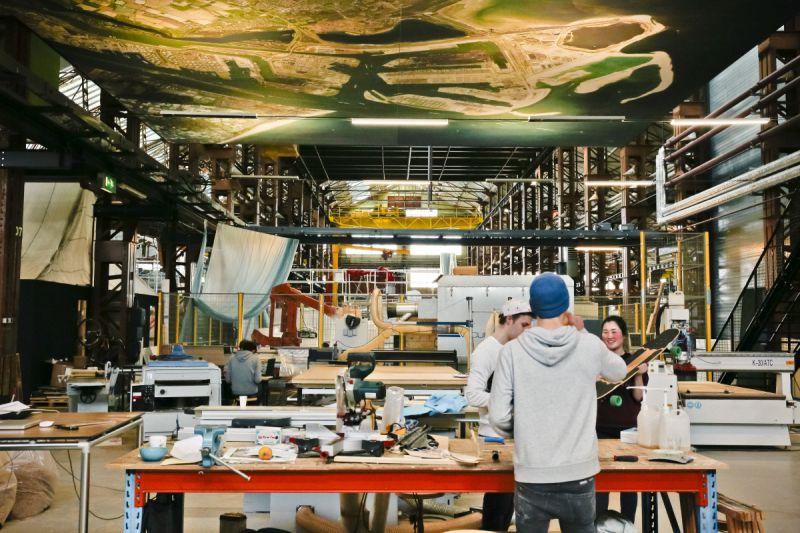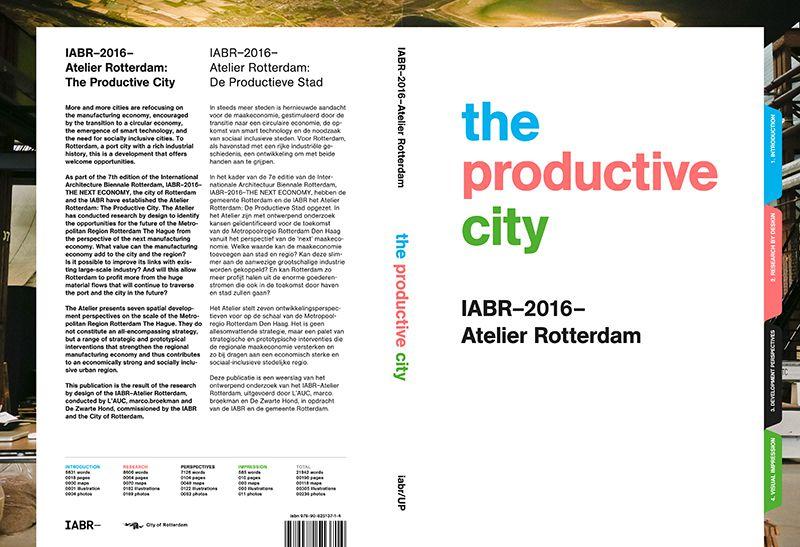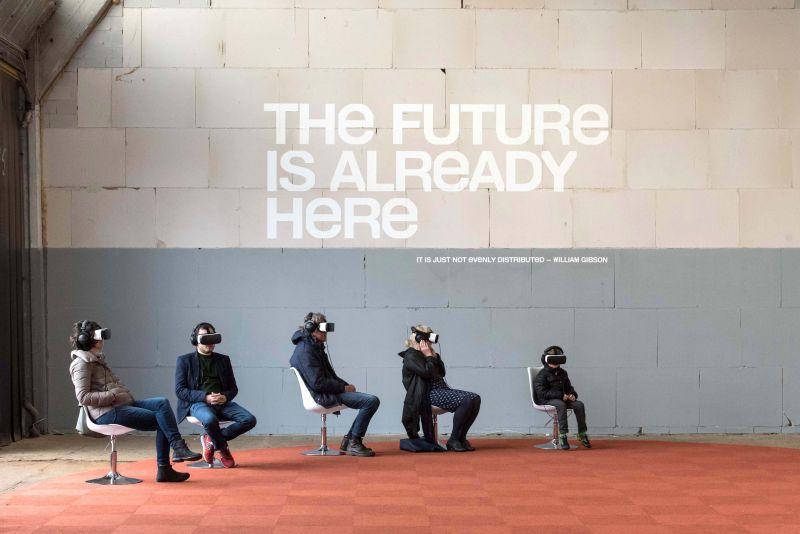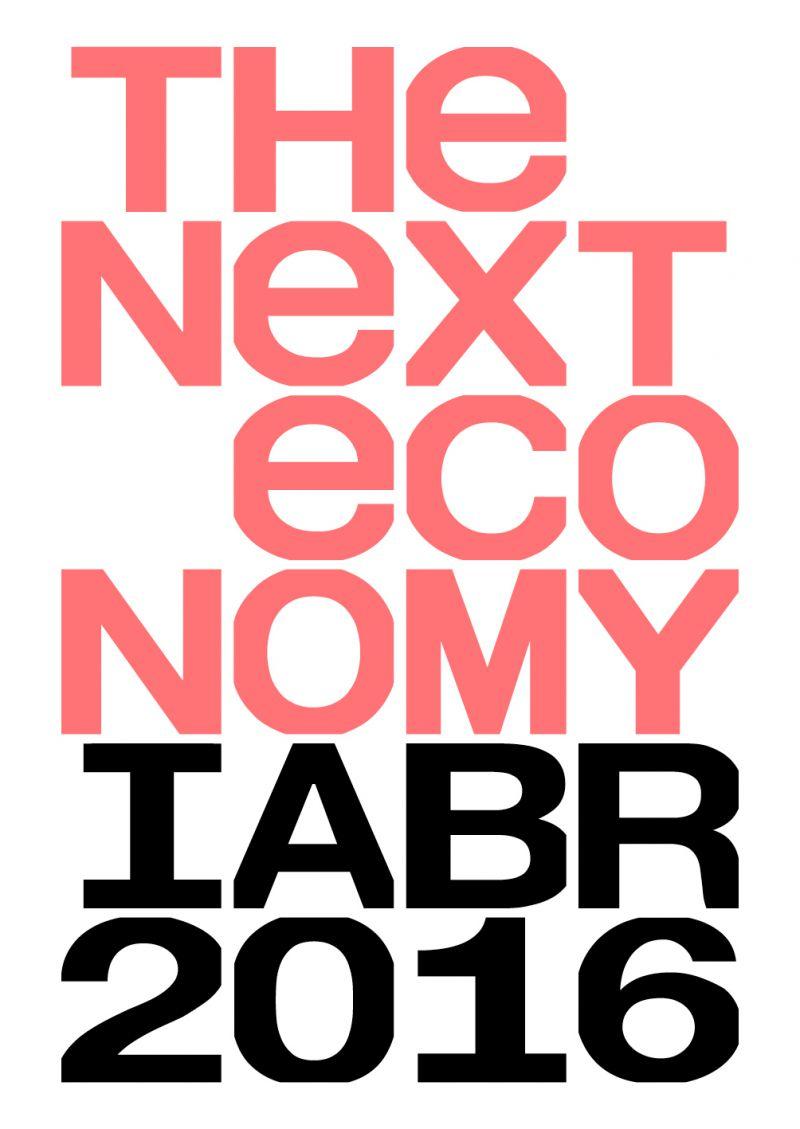Atelier Rotterdam proposes seven development perspectives that can contribute to the creation of a healthy and innovative manufacturing economy in Rotterdam.
Public
Rotterdam has a long history of productive convergence of working and living in the city. The Schouwburgplein is used as a permanent showroom, with temporary events organized by locally rooted makers. It is a powerful, public place where innovative entrepreneurs can come together, and organizations can meet citizens and young businesses. ‘Making Public’ aims to create a productive mindset in the city and the region and to place the conversation about the Next Economy in the middle of the public domain.
Landscape
The Next Economy is a circular economy. The value of local landscapes as renewable sources of materials, products, and energy is increasing. The Circular Landscapes concept connects dispersed landscapes into a large, resilient and circular system. The presence of complementary landscapes in the Rotterdam The Hague Metropolitan Region offers the region opportunities to optimize and close the cycles of production and consumption, waste, and energy.
Infrastructure
The various production environments in the Rotterdam The Hague Metropolitan Region have always been connected by a network of roads and waterways. Along the main axes of this network, ribbon development with mixed uses developed over time. New layers of infrastructure, such as railways and motorways, have changed the use and importance of these axes, the High Streets. Revaluing these High Streets and their unique (spatial) qualities makes it possible to improve the connections between manufacturing environments and to strengthen the local manufacturing economy.
Living and Working
The distinction between working and living is becoming blurred, and there is a need for environments where production and consumption, learning and doing, ‘making’ and ‘thinking’ are spatially connected, also at the district level. To make the most of the opportunities of the manufacturing economy, we must create an ecosystem that optimally facilitates and stimulates the interaction between activities and actors. The GroLiWo (Growing Living Working) concept is an architectural typology that both facilitates this new proximity at the district level and is a way to realize this hybridization in the industrial areas along the Meuse river.
Services
People and companies are becoming more demanding of products and services. The boundary between the center and the periphery is disappearing; there is a need for on-demand production and delivery throughout the region. Productive Service Stations (PSS) provide the Rotterdam-The Hague Metropolitan Region with a service structure that is equally accessible to all. The Stations are identical in concept, but can be adapted to local needs, for example by adding charging stations for electric cars, shared bicycles, convenience stores, delivery addresses and storage space for web orders, as well as shared spaces and tools for production, repair, and maintenance.
Education
Innovation and education are the fuel of the future manufacturing economy. Innovation requires places where education, research institutes, and companies come together, such as Open Innovation Campuses and Science Parks. The Rotterdam-The Hague Metropolitan Region has a number of such places, but they are not always used to their full potential. A Learning City provides a region-wide network of accessible, small-scale, and dispersed facilities, such as fablabs, social makerspaces, and hybrids of theoretical and practical education, while also promoting concentrations of places and facilities where innovation can emerge.
Repositioning Working Districts
Industrial estates and business parks are often seen as monofunctional areas, when in fact they are often home to a variety of activities, a mix of manufacturing, services, and logistics. The sites are often located on the outskirts of municipalities, close to highways but difficult to reach by public transportation from city centers. In contrast, from the perspective of a regional manufacturing economy, some districts are in central and (potentially) strategic locations, close to larger manufacturing facilities or to scientific and educational campuses. The manufacturing economy can provide a new and sustainable perspective for these twentieth-century working-class districts.




